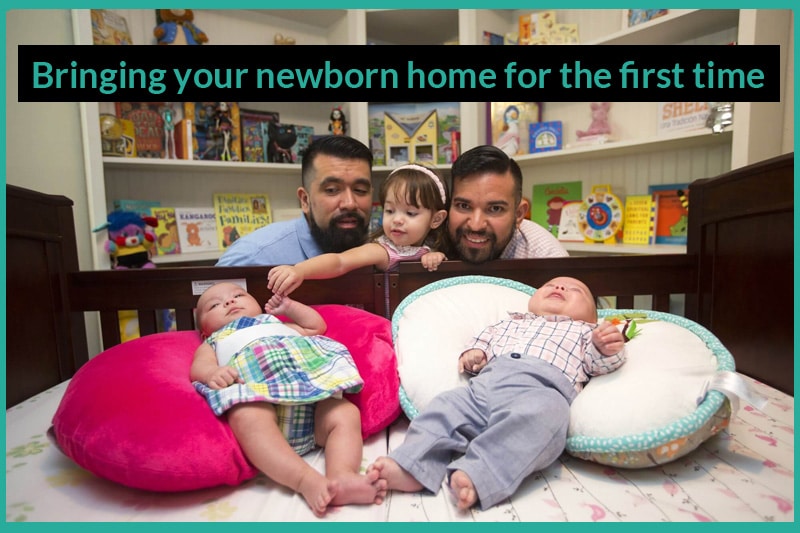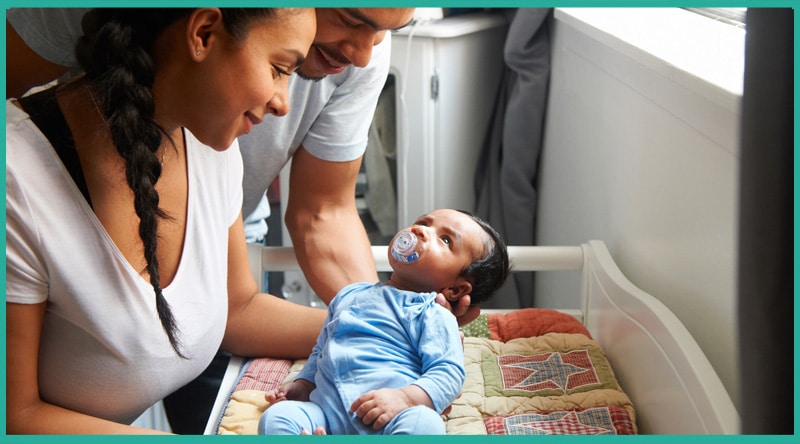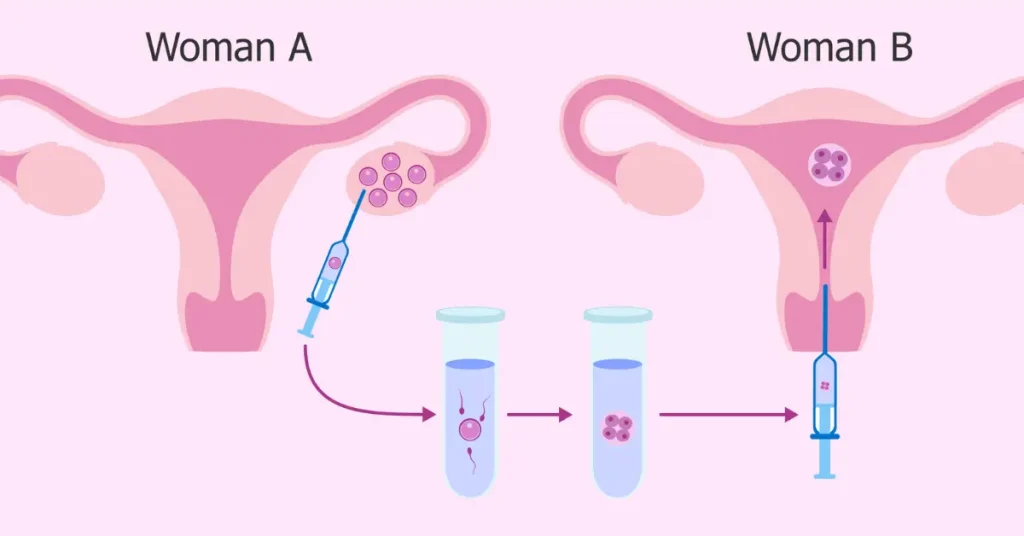Just imagine- you are blessed with a baby via surrogacy and on cloud nine with the sheer happiness of bringing it home. Well, wait! Regardless of how easy and simple your surrogacy journey during surrogacy in Cyprus has been, you must ensure all the precautions while bringing this little happiness home.
That said, preparing your home for a new baby can be exciting and stressful at the same time. While you are already ‘over the moon’ given the arrival of this much-awaited happiness, you must surely prepare yourself (along with your living space) for that little blessing in advance.
That said, we list down several ways to help you prepare your house for your surrogacy baby. While these may not work for everyone, they would certainly help you in getting most of the points covered.
Key points to be considered while preparing your house for a new baby
Setup the baby space: Setting up the baby space is just like preparing for surrogacy – exciting yet stressful. So, even when you have achieved the desired results via a surrogacy agency in Cyprus, you got to do the whole job of preparing the baby space all by yourself.

As it’s a newborn, you must ensure that the baby is having its own special living space. This is where the baby will sleep and often spend a good amount of time, so making sure it’s comfortable, safe, and well-equipped is essential. Moreover, you will need items like a crib, mattress, bedding (avoid pillows, bumpers, and loose blankets due to the risk of suffocation), a changing table, and storage for baby clothes and diapers.
Buy Essential Baby Supplies: This includes diapers, wipes, baby clothes, swaddles, pacifiers, bottles (if not exclusively breastfeeding), baby bath supplies, and a baby first aid kit. Consider buying in bulk for items you’ll use a lot, such as diapers.
Baby-Proof the House: This becomes more relevant as the baby grows, but starting early can be a good idea. Baby-proofing might include securing heavy furniture to the wall, installing baby gates on stairs, covering outlets, securing cords out of reach, and installing cabinet locks.

Set Up a Diaper Changing Station: In addition to the baby space, you might want to set up another area in your house for changing diapers. Moreover, it can be handy to have diapers, wipes, and a changing pad in a few convenient locations.
Prepare for Bedtime: Depending on your preferences and your baby’s needs, you may want a bassinet or co-sleeper for your own bedroom for the first few months.
Organize and Clean: You’ll likely want to thoroughly clean your house before the baby arrives and keep it as organized as possible. Besides, babies come with a lot of gear, so developing a system early can help.
Parents must remember that every baby comes up with its own special needs. So, you must prepare your living areas accordingly while taking special care of all those requirements of that little toddler.
When should you start preparing your house for a baby?
It’s generally a good idea to start preparing your house for a baby around the start of the third trimester of pregnancy, which is around the 28th week. This gives you plenty of time to set up the nursery, purchase supplies, baby-proof the house, and organize everything without feeling rushed. It also accounts for the possibility that the baby might arrive earlier than the estimated due date.
However, many parents start the process even earlier, particularly when it comes to purchasing larger items such as a crib or car seat, or if they plan to do extensive decorating or renovations in the nursery. Moreover, if you’re adopting a child or becoming a parent through surrogacy, you might also start preparing the house a few months before the estimated arrival of the child.
Remember, it’s also important to balance preparation with rest and relaxation. That said, pregnancy, adoption, and surrogacy can all be physically and emotionally demanding, so make sure you’re taking care of yourself as well as getting ready for the baby.
What are the 4 basic needs of a newborn baby?
While every newborn baby comes up with unique needs, here are the most basic ones on the list :
Nutrition: Newborns must get the right nutrition to ensure their proper growth. While a newborn may mostly be breastfed, the parents must check about other options with their physician. Besides, parents should monitor signs of hunger such as increased alertness or activity, mouthing, or rooting and should ensure the baby is gaining weight appropriately.
Sleep: Sleep is crucial for a newborn’s development. That said, newborns often sleep up to 16-18 hours a day in several stretches. Moreover, it’s important to create a safe sleep environment to reduce the risk of sudden infant death syndrome (SIDS). This includes placing the baby on their back to sleep and ensuring the sleep surface is firm, flat, and free of loose bedding or soft toys.
Cleanliness and Health Care: Regular diaper changes and baths keep a newborn clean and comfortable, reducing the risk of irritation and infection. Additionally, newborns require regular health check-ups to monitor their growth and development, receive necessary vaccinations, and address any health concerns promptly.
Comfort and Affection: Newborns need to feel safe, secure, and loved. Moreover, this can be achieved through regular cuddling, gentle rocking, soothing voice, and skin-to-skin contact. Hence, responding promptly to a newborn’s cries helps them feel secure and strengthens the parent-infant bond.
Beyond these basic needs, it’s also important to provide a safe and stimulating environment as the baby grows, with opportunities for them to learn and explore. Regularly talking, singing, or reading to a newborn, for example, can support their language development and strengthen your bond with them

What should we clean before the baby come?
Bringing a newborn home to a clean and organized environment can make the transition smoother for everyone involved. That said, here are some key areas and items to clean before the baby arrives:
Baby’s Room: Dust, vacuum, and wipe down surfaces in the baby’s room first thing. If you have used or secondhand items, make sure they’re cleaned properly.
Baby Gear: Clean items like the crib, changing table, stroller, and car seat. For fabric items like baby carriers, swings, or bouncers, check the proper cleaning instructions on the products before cleaning.
Feeding Supplies: Clean and sterilize bottles and breast pump parts before using them for the first time. Moreover, you’ll need to do this regularly once the baby arrives as well.
Bed Linens and Clothes: Wash baby’s clothes, blankets, and bed linens. Use a gentle, baby-safe laundry detergent to avoid irritating the baby’s sensitive skin.
Your Bedroom and Bathroom: If the baby will be sleeping in your room initially, make sure your room is also clean and dust-free. On the other hand, clean and sanitize the bathroom, focusing on surfaces like the sink, tub, and countertop where you might be handling baby items.
Kitchen: Clean the refrigerator, microwave, and other appliances. This is also a good time to wash and sanitize any dishes, utensils, or cooking tools that may have been sitting unused for a while.
Floors: Vacuum carpets and mop hard floors throughout the house, especially in high-traffic areas. If you have pets, be thorough about removing pet hair.
High-Touch Surfaces: Wipe down doorknobs, light switches, remotes, and other frequently touched items.
Pets: If you have pets, make sure they’re clean, their bedding is washed, and their area is tidy to minimize allergens.
Final words
As you bring that most awaited happiness home, it is highly important to provide him/her with a clean and safe environment. While the above-mentioned aspects are important, you must check with your respective physician for more precautions in the same context.















